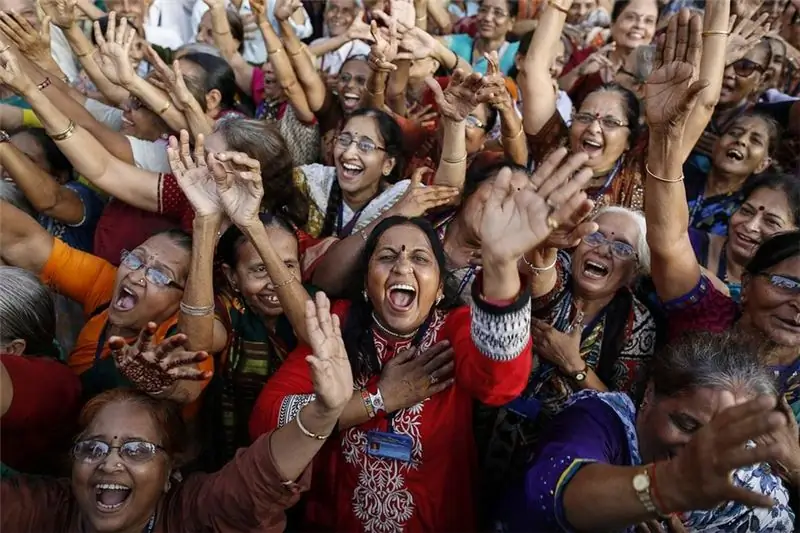
Motley and bright as a festive sari, India is a land of diverse culture. Here you can meet dozens of nationalities and ethnic groups, whose representatives use hundreds of dialects and dialects in everyday communication. Two languages have the right to be called the state languages of India - English and Hindi, although even in the middle of the last century, the Indians tried to switch only to Hindi as an official one. However, there is a whole list of territories where Hindi has not received proper distribution, and the Indian economy is largely tied to international contacts, and therefore English has retained its positions in the 21st century.
Some statistics
The numbers and facts about India's linguistic wealth are impressive:
- The inhabitants of the country speak 447 different languages. There are even more registered dialects - about two thousand.
- State governments can use not only English and Hindi for administrative purposes, but also 22 other languages that are included in the official list. This is necessary so that residents of certain territories, who do not speak either Hindi or English, remain aware of the country's social and political life.
- Hindi is spoken in only 13 of the country's 35 states and union territories.
- The official language is English only for residents of 8 states and territories of the country.
- There are a huge number of Hindi speakers in the world and in their number and prevalence it is second only to Chinese.
Hindi is most popular in the northern provinces. It was recognized as the official language of India in 1965, just like English. It is noteworthy that a variant of Hindi called Hindustani is considered the official language in the Fiji Islands.
Tourist notes
English is very widespread in India, in the sense that residents of large cities speak it very fluently, and in small cities they are fluent in it. Taxi drivers and waiters, hotel receptionists and police are especially fond of chatting in the language of the former colonialists. Any problem of a traveler in India is easily solved, and ticket tellers at railway stations and sellers in souvenir shops can answer questions completely.
When booking a tour in English, ask your guide to speak a little slower. So all the information will be understandable and accessible. Travel guides, information brochures, restaurant menus and maps of city attractions are all printed in English, making life much easier for the white man in exotic India.






